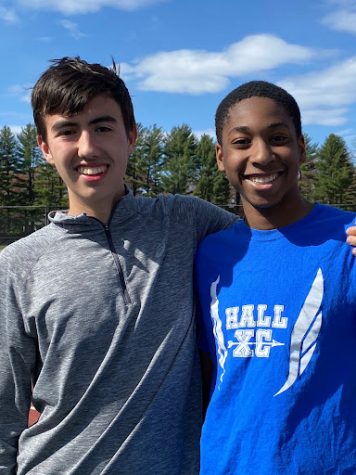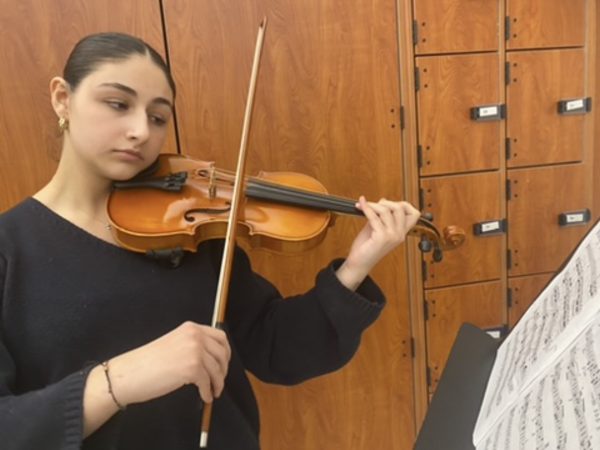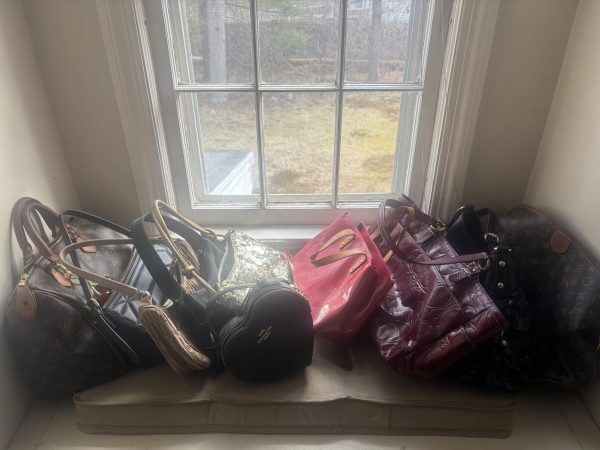How Incorrect Reporting Influences Career Biases

It was the day of my fifth-grade promotion ceremony. I walked down the auditorium’s aisle as the principal read some things about me. “Grayson’s favorite book is The Lightning Thief, he’d like to travel to Greece, and he wants to be an author when he grows up.” My mom perked up and poked my dad. “An author,” she grinned. I shook the principal’s hand and then left the stage. More kids were called up, and as facts about them were shared with the audience, it became clear other kids had different careers in mind. To my mom’s dismay, most said they wanted to become YouTubers or some other sort of content creator. Later, as we were leaving the ceremony, she told me I was glad I had chosen a real job. That night has had me wonder what it means for a job to be “legitimate”, and who decides that. Logically, the group with the largest reach has the largest influence on the biases people develop. Many people look to journalists to inform themselves on a wide range of topics, including jobs. After considerable research, I’ve found that news sources can negatively affect a career’s narrative when it’s been subjected to poor research and interviewing.
I decided it would be important to focus on one particular set of jobs when researching how the news sways the perception of a profession. The wide variety of influencers and their prevalence in the news makes them perfect to conduct a more magnified study on. I began looking for a connection between where people get their news from and their opinion on content creators. I found news consumption data by age group from The Media Literacy Clearinghouse and discovered there are substantial differences between Gen Z and their parents, Gen X. Only 21% of Gen Z consumed online press, compared to Gen X’s 37%. Furthermore, the younger generation watched 24% less broadcast news than the older generation. After finding this, I then conducted my own study where I asked these age groups to rate how much they believed being a YouTuber to be a legitimate career. The responses to my survey confirmed that adults were 11.2% less likely to recognize the job of a content creator as a career than teenagers and young adults. This is because adults are more likely to consume news that feels that way. The BBC, a popular, trusted source, wrote an article on a rugby player who turned to TikTok to draw in new viewers of his sport. “Joe Marler looks straight down the camera. Well, sort of straight. His eyes are crossed. ‘Hello sexy banana,’ he drawls, before throwing his head back and singing the phrase ‘very good, very nice’ in a pin-sharp, high-decibel falsetto.” The BBC provided quite a poor first impression of the accomplished athlete, author, and podcaster. Although there are articles that put the influencer career in a positive light, like NPR’s “Talking race, pop culture and YouTube with Khadija Mbowe,” they can often be overshadowed. CNN’s headline “Jake Paul has propelled to fame as a brash social media villain. And he loves it,” sheds YouTubers in a hugely negative light. Having read these articles, it’s clear why adults, who are more likely to read these news sources, find the job of a content creator to be illegitimate more often than kids.
Despite knowing this, it doesn’t explain why journalists have concluded that influencers don’t have real jobs. After reading more articles promoting that idea, I was able to find out why. Vox, yet another news website, reported on the Netflix show Hype House, which followed TikTok’s most viral creators. The story exhibits content creators as lazy and embarrassing. The site alleges, “… it becomes painfully evident that nobody actually really wants to be there. … it’s 2022, and being a member of the Hype House — which two years ago was composed of the Gen Z social media A-list — is now mostly an embarrassment.” And while it may seem like this is an objective review of the show, it’s important to keep in mind that Vox didn’t even interview any of Hype House’s stars. Instead, they pulled dialogue directly from the show. They used this dialogue as their only source for the entirety of the article. This is blatantly poor reporting, and it reflects in the narrative they weave for content creators. Because the field of journalism can often produce stories like this, there are guidelines for journalists to follow. The American Press Institute, a nonprofit organization for the advancement of news media, says this in their article on Elements Of Journalism. “Journalism is our modern cartography. It creates a map for citizens to navigate society. As with any map, its value depends on a completeness and proportionality in which the significant is given greater visibility than the trivial. Keeping news in proportion is a cornerstone of truthfulness. Inflating events for sensation, neglecting others, stereotyping, or being disproportionately negative all make a less reliable map.” In short, they’re saying that journalists should enter an interview with an open mind, and ask questions that paint a clearer story of a person or topic. Hall Highlights reporter Baylee Krule was able to accomplish this in her article about the rise of pajama pants in the classroom. She touched on multiple opinions about what was occurring in the school and even interviewed a student who wore pajama pants. A school newspaper has upheld better journalistic integrity than large, international news sources.
Reading about how journalists should be reporting made me curious about what a YouTuber’s narrative would be if I were to conduct an interview of my own. Hall’s very own Alex Steinberg has a YouTube channel called SteinySports, where he records videos of himself skiing and mountain biking. I set up an interview with him and asked him a few questions, keeping in mind the goal of getting a complete look at him as a content creator. To do this, I asked my first question, which is arguably all I needed. It read, “Before we start, in regards to your youtube channel, is there anything you want readers to know?” He replied, “I want readers to know that for me, my youtube channel, Steiny Sports, is a record of my progression through the years when it comes to skiing and mountain biking. Though I enjoy gaining subscribers and views, I don’t see success as getting the most views or most subscribers, but as putting out content for everyone to enjoy, including myself.” What Alex said shows a completely different side to content creators than the above articles, and only hammers in that the portrayal of a career in the media is dependent on authentic interviewing and reporting.
Now, if you want unbiased information for researching your own career possibilities, I’m not suggesting you organize an interview. But, there are a few things that you can do to make sure that your news isn’t sharing a false narrative. Firstly, make sure the article is pulling information from multiple points of view. All careers and the people who work them are multifaceted, and it’s easy to jump to a conclusion when reading a one-sided article. Secondly, if a job is large enough for you to be researching it, there probably exists more than one article about it. Double-check the consensus among various parties. And lastly, when you’re looking for cold hard facts, make sure you aren’t reading an opinion article. Opinion pieces give journalists more freedom to jump to conclusions without going to the lengths of proper interviewing. Remembering these three things will ensure that you don’t develop biases influenced by incorrect reporting.






Mikhail • Jun 3, 2022 at 12:35 pm
Excellent read! Well done Grayson.